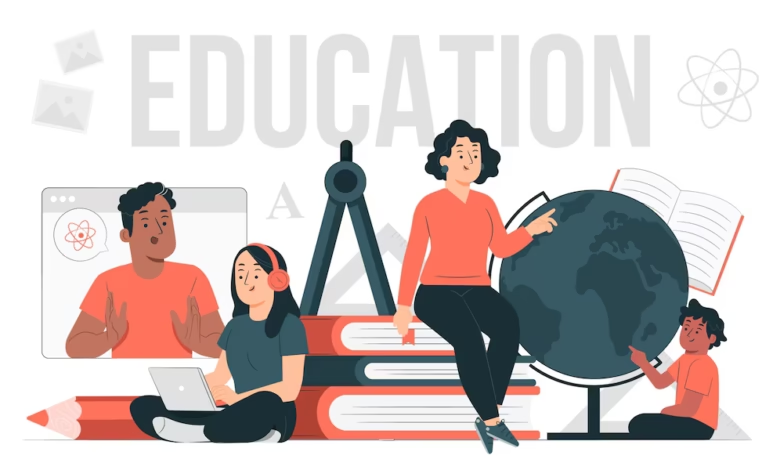Why Does the Common Core Curriculum Matters?

In an age where knowledge is evolving faster than ever, higher education must do more than prepare students for a single career path — it must equip them to think critically, communicate effectively, and adapt to a rapidly changing world. This is where the Common Core Curriculum becomes essential.
Structured to expose students to a broad range of disciplines, the Common Core is a foundational educational model that emphasizes critical thinking, problem-solving, and ethical reasoning. While originally popularized in the United States, the core curriculum approach is now influencing universities worldwide — including institutions in Pakistan that are shifting toward a more holistic, interdisciplinary education model.
Among them, Habib University stands out as a unique example, offering a powerful version of the Common Core known as the Liberal Core, making it one of the best universities in Pakistan for well-rounded undergraduate education.
What is the Common Core Curriculum?
At its core, the Common Core Curriculum ensures that all students — regardless of their major — receive a well-rounded education. This typically includes courses in:
- Mathematics and quantitative reasoning
- Natural and physical sciences
- Humanities and social sciences
- Language and communication
- Arts and culture
- Ethical and civic education
The purpose isn’t just to accumulate knowledge, but to develop the intellectual skills that make students better thinkers, communicators, and citizens. The Common Core fosters interdisciplinary exploration and challenges students to think beyond their comfort zones — a crucial skill in a world where knowledge is interconnected.
Why the Common Core is a Valuable Model
1. It Encourages Holistic Thinking
Students learn to connect ideas from multiple disciplines. A computer science major might find ethical implications in artificial intelligence, while a social science student learns how data analysis strengthens their arguments.
2. It Strengthens Communication
Writing-intensive courses and public speaking opportunities are often integrated into the curriculum, helping students express complex ideas clearly and confidently.
3. It Cultivates Civic Responsibility
Understanding global issues, local histories, and diverse perspectives allows students to develop empathy and become more responsible citizens.
4. It Builds Adaptability
Graduates aren’t just experts in one field; they are problem-solvers who can work across industries. This adaptability is highly valued by today’s employers.
5. It Creates Lifelong Learners
Exposure to a broad range of subjects builds curiosity and the capacity for self-directed learning — both essential for navigating evolving career paths and societal changes.
Habib University’s Liberal Core: A Local Vision with Global Depth
Habib University has adapted the Common Core philosophy through its Liberal Core — a deeply reflective and rigorous set of courses that every student, regardless of major, is required to complete. This curriculum is grounded in both global best practices and local cultural contexts, making it truly distinctive.
Key Liberal Core courses at Habib include:
- Rhetoric & Communication – Developing writing, persuasion, and analytical thinking.
- Jehan-e-Urdu (The World of Urdu)
- What is Modernity?
- Pakistan & Modern South Asia – Understanding national identity through history, politics, and culture.
- Hikma I & II – Exploring Islamic intellectual traditions and ethics.
- Logical problem Solving
- Programming Fundamentals
- Scientific Methods
These courses are carefully designed to align with Habib University’s philosophy of Yohsin, meaning thoughtful self-cultivation. The Liberal Core doesn’t simply fill a checklist — it shapes a student’s intellectual character and social consciousness.
Why Habib’s Model Matters for Pakistan
Most universities in Pakistan still emphasize discipline-specific knowledge, often at the cost of broad-based learning. This results in graduates who may be technically competent but lack critical skills like effective communication, ethical reasoning, or creative problem-solving.
Habib University breaks this mold. Its Liberal Core addresses the limitations of conventional higher education in Pakistan by focusing on cross-disciplinary dialogue, civic engagement, and intellectual curiosity. It represents a rare but essential shift toward a truly modern and transformative undergraduate experience.
While institutions like LUMS and Aga Khan University are also expanding their general education offerings, Habib’s integrated, deeply contextualized approach makes it a leader in the liberal arts and sciences model.
A Future-Ready Education
As the world becomes more interconnected and unpredictable, students need more than just technical know-how. They need to be adaptable thinkers, conscious citizens, and articulate leaders. A Common Core Curriculum — especially when thoughtfully designed like Habib’s Liberal Core — provides exactly that.
For prospective students and parents searching for a university that goes beyond rote learning and career training, Habib offers an education that is intellectually rich, socially relevant, and globally informed. This innovative approach firmly places Habib among the leading universities in Pakistan, offering a powerful blend of tradition and modernity.



